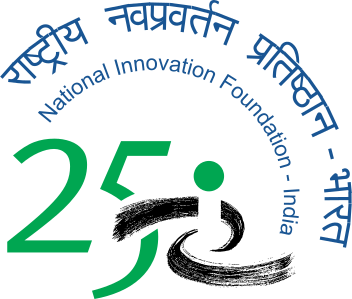News
Who says you need to sit in a classroom to learn scientific concepts? Shivaji Mane, who studied till Std 7, was working as a housekeeping staff at the Inter-University Centre for Astronomy and Astrophysics (IUCAA) until he came in contact with Arvind Gupta.
Innovator Arvind Gupta has revolutionized the way the world looks at waste through his 'Toys from Trash' project. A TED and INK Talks speaker, he popularized science among children by transforming common household items into learning toys. He is an inspiration to many and Mane's is one such story.
Mane is now a speaker, science concepts teacher and a facilitator for educational toys. His first stint was the levitation train.
"All you need are a set of pencils, rubber slipper and some magnets to give life to concepts of physics. I am thankful that my job took me inside a science laboratory and seeing my curiosity, Gupta sir encouraged me to try my hand at one of the things he was demonstrating that day," he says.
Mane now takes the concept of 'toys from trash' to rural communities and schools. "There is no dearth of resources in rural areas. Scientific and mathematical concepts can be taught through model toys made from every day times like matchsticks, rubber bands and slippers," he says.
Well-versed with Newton's laws, pressure, magnetism, force, vectors, angles, geometry, he infuses life into newspapers, caps, matchsticks and more such items.
Grassroots action
Mane is not the only one who is inspired by Gupta's school of thought. Thirty-year-old Girish Mahale, MTech from IIT, left his job at IBM and went to back to his hometown in Pandhurna in Chhindwara district of Madhya Pradesh in 2014 to start a non-profit organization called Pratyay EduResearch Lab
"Education can solve many problems. Giving quality, meaningful education to the rural or backward classes is essential for our society's progress," says Mahale.
Mahale's NGO Pratyay, which means to add something, uses MIT's research to create a support-based pedagogical system and uses Gupta's fundamentals of 'toys from trash' to implement it at the grassroots level.
He works with government schools, tribal students and also builds capacities of associated teachers. Mahale and his team has set up community-driven innovation labs operated and owned by students where they lay their hands on scientific toys and learn concepts through practical workshops.
Pratyay has now started a fellowship programme for people who work with them.
Practical learningPune's DriveChange Learning Resource Centre (DLRC) has a similar story. The centre is associated with the Cambridge School of Open Learning and the National Institute of Open Learning (NIOS) and has customized its curriculum focusing on practical, experienced-based learning.
The centre takes in children of all age groups and uses tools like toys, yoga and field trips to create an atmosphere of community learning. Children from across the state also visit the DLRC for its popular "funda clearing sessions," which are IIT-JEE preparation courses.
"When I was doing my BSc, I used to visit Guptaji's centre often. A very passionate man, his style and voice is mesmerizing and one cannot help but get drawn to his teachings. The use of toys or science models can be used to facilitate so many things and make learning more interesting," says Pavan Iyengar, an MSc graduate and an ardent admirer of Gupta.
Together with Mona and Ajay Dalmia, he started the innovative learning centre. He now gets requests from parents and schools in Pune and Bangalore to teach children how to make learning toys.
He is also managing an initiative called 'Hands On Learning Initiative' (HOLI). Iyengar explains that a 'HOLI' birthday bash is an hour-long session where children and adults would witness the 'magic' of science through experiments. A HOLI session for corporates would be a team-building and stress busting exercise.
"Simple things like a bouncing ball, a laser light beam in water can make concepts like gravitation, light reflection, refraction, atoms easy to understand," he says.
HOLI has helped developed programmes for physics courses at the Institute of Bioinformatics & Biotechnology - Savitribai Phule Pune University (SPPU) for the first two years, for which they collaborated with Amit Morarka, a PhD student at SPPU.
"HOLI and DLRC are helping student groups in Indian Institute of Science Bangalore (IISC), Indian Institute of Science Education and Research Pune (IISER), Indian Institute of Technology Bombay (IITB) to develop voluntary outreach programmes and create a low-cost JEE learning model."
Taking a leaf out of Gupta's work, Iyengar aims at using HOLI and DLRC towards "effective and impactful learning at schools, colleges, research labs and even at the neighbourhood kirana store, tea shop and cycle repair shop."
Resources at hand- Free workshop on Tuesdays and Thursdays conducted by Arvind Gupta at IUCAA, Pune
- Arvind Gupta's website and IUCAA's Scipop section lists numerous scientific toys, their methods and working in videos and pictures
- DriveChange Learning Resource Centre in Baner conducts workshops for students of all age groups on making toys from waste to understand scientific concepts
- DLRC has a resource library where children and adults can know more about 'hands-on-learning'
- Hands On Learning Initiative invites all students to try and make their own toys which will be sent to the National Innovation Foundation for recognition
- Materials used for making learning toys: Matchsticks, newspaper, rubber band, tin cans, tetra packs, rubber slippers, pencil, old batteries, aluminium foil, old plastic bottles, balloon, old compact discs, bicycle valve tubes, pen refills, pens, bicycle spokes, wool
‎
Coke-can aeroplane, ‎torch from trash, ‎e-motional cup, lift, pencil, levitation train, Tetra Pak windmill, balloon rocket, electricity generator, badminton feather shuttle-based wind turbine






